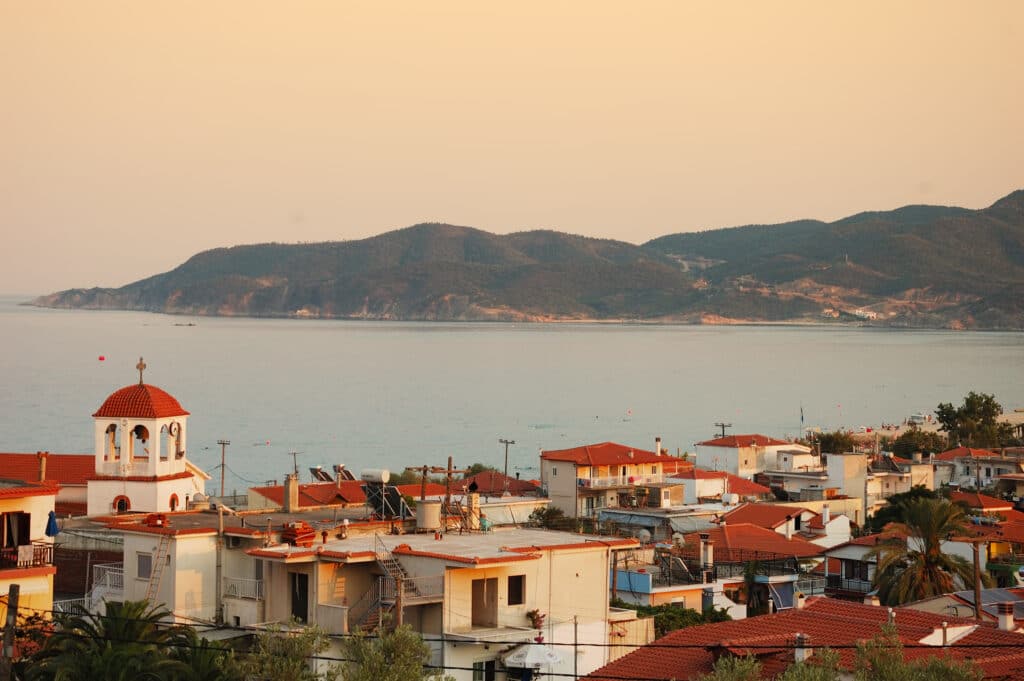My parents immigrated to the United States from Greece in the 50’s and 60’s and made Charlotte, NC their new home. As a child, I travelled to the old country often, visiting the family and friends that still lived there. I continue that tradition today with own family — most recently travelling to Greece this summer.
While I’ve visited this picturesque country too many times to count, I’m still in awe of its stark beauty. It is essentially one massive archeological site – it’s landscape peppered with historical landmarks (and indescribably delicious restaurants). Cape Sounio — located on the southernmost point of the Attican Peninsula and home to the Temple of Poseidon — is just one of my favorite places to visit.
That said, you can’t help but notice the contrast of modern and ancient throughout the country. Modern concrete buildings stand adjacent to lots with ancient ruins. Shopping malls and subway stations all feature archeological attractions displaying the artifacts found during their construction. From an MEP perspective, this ancient/modern contrast is intriguing and especially pronounced in many instances.
In the United States, zoning laws and building codes are commonplace. American cities first implemented them in the late 1800s to reduce the risk of fire in densely populated urban areas. Over time, their scope expanded and they now not only regulate land usage, but also specify the minimum requirements to safeguard the health, safety, and general welfare of building occupants.
As an MEP consultant, working within the confines of these codes and laws can be tedious. However, when visiting a country such as Greece—in which similar codes are not as widespread or routinely followed—the reasons behind the codes become abundantly clear: They contribute to a higher standard of living.
Take, for instance, these examples I’ve personally observed and experienced during my travels through Greece:
- Sidewalks lining busy roads are often narrow with trees growing through the concrete – making them impassable and dangerous.
- Very few buildings contain central A/C. Most locals use mini split systems, with the condensing unity strapped to an outside wall – a real eyesore. Or, they rely on thick stacked stone or solid concrete walls to beat the heat – often dropping the temperature indoors by 20°F relative to the outside.
- Central sewage systems are also rare. Most buildings and homes rely on an in-ground storage tank – not a septic system – for sewerage. As the lines connecting the structures to the tank are often only 2 inches wide, toilet paper cannot be flushed because of clogging issues, so its disposed of in a small trashcan next to the toilet.
- There are no requirements regarding receptacle placement. In a large room, it is not uncommon to find only one or two electrical outlets.
- Electricity is incredibly expensive. To compensate, residents don’t run their water heaters continuously as we do in the U.S. They must plan-ahead, turning the heaters on shortly before showering to warm the water and turning it off once it is.
- On the plus side, the Mediterranean climate allows the widespread use of solar water heating. These systems work and provide loads of free hot water.



While examples like these abound, for the residents and businesses that call Greece home, the system works. They’ve adapted to their landscape, creating their own piece of modern paradise among the ancient monuments and ruins. My hope is that as the country continues to grow and modernize, it will adopt the necessary codes to better provide for the safety and well-being of its residents while maintaining the charm that has repeatedly drawn me back.
—
About VP Engineering
VP Engineering is a dynamic MEP design firm offering engineering expertise in senior living, multi-family, hospitality, medical, industrial, retail/commercial and educational markets worldwide. With experience in a wide range of building types, our MEP engineering services help keep projects on budget and achieve your goals. Learn more at vpce.com.



